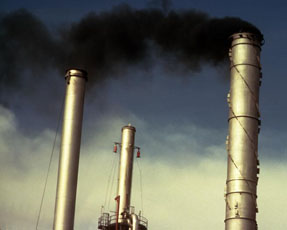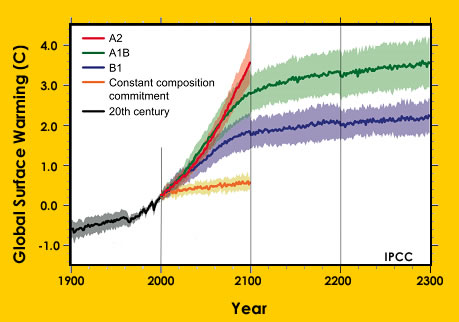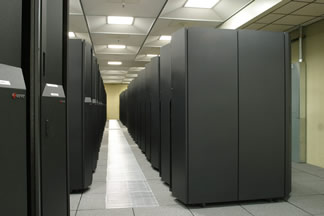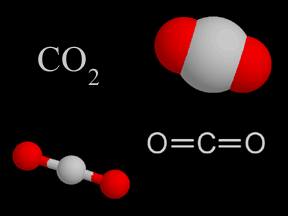Happenings at the Copenhagen Climate Summit
 |
There are high expectations and big challenges facing the world leaders and delegates at a climate summit organized by the United Nations taking place in Copenhagen, Denmark, 7-18 December 2009. On this page you will find daily reports about what's happening in Copenhagen. Click on a date below to explore more. |
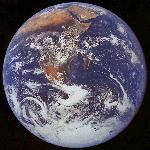 |
The US and China are responsible for half of the greenhouse gases emitted each year. Yet, in the past both countries have resisted changing their behaviors and reducing emissions. Throughout the Copenhagen Summit, other world leaders have been challenging the US and China to change their ways. Said Swedish Prime Minister Fredrik Reinfeldt today, "I turn to you, as a friend and a committed partner, and I say: United States and China: unleash your full potential and thereby the world's efforts - make it possible for the world to stay below two degrees!" The aim is still to reduce emissions enough to keep warming at no more than two degrees Celsius, but many questions remain about how countries will do that. While there is no signed agreement yet, world leaders are hopeful that a decision can be reached soon - if not by the end of this meeting, then within the next several months. US President Barack Obama spoke today, emphasizing his commitment to action on climate. He told the meeting participants to "choose action over inaction; the future over the past - with courage and faith, let us meet our responsibility to our people and to the future of our planet." The Summit might be continuing on for an extra day. Meeting organizers have asked attendees to stay and continue discussions on Saturday to see if an agreement can be reached.
|
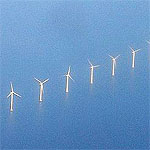 |
The Copenhagen Climate Summit is drawing to a close tomorrow. Was it a success? Some that if the meeting ends tomorrow without a solid agreement then the nations have failed. Said French President Nicolas Sarkozy, "There is less than 24 hours. If we carry on like this, it will be a failure." Others say that the meeting has jump-started the process of building agreement between nations, and that an agreement will be settled upon in the near future even if not by the end of the meeting. But one thing is clear to all - the importance of an agreement. "We cannot permit the politics of narrow self interest to prevent a policy for human survival. For all of us there is no greater national interest than the common future of this planet," said British Prime Minister Gordon Brown. They still have one more day to reach an agreement in Copenhagen. Will it happen? Stay tuned!
|
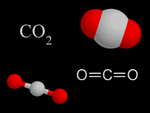 |
Today in Copenhagen, a team of climate scientists released a report on the current state of knowledge about climate change. Since the Intergovernmental Panel on Climate Change (IPCC) released their Forth Assessment Report in 2007, scientists have learned more about the science of Earth's climate, the impacts of warming, and what the future may hold according to models. The report that climate scientists shared today gives the world leaders gathered at the Copenhagen summit an update about what scientists know about climate according to published studies. Take a look at the online version of their report at the link below. In other news, the attendees discussed rewarding countries for slowing deforestation. Forest trees take carbon dioxide (CO2) out of the atmosphere. Cutting down forests means that more CO2 stays in the atmosphere. Extra CO2 in the atmosphere is what's causing the disruption in Earth's climate. Check out the carbon cycle links below to learn more about how carbon moves through the Earth system.
|
 |
4,000 people from 38 countries discussed the same questions that world leaders are tackling in Copenhagen on September 26, 2009. These were not world leaders, just ordinary citizens. They came from many different backgrounds and had different perspectives about climate change, yet they discussed together and came to consensus about what actions they suggest world leaders take at the Copenhagen Climate Summit. The results from the discussions in the 38 countries have been summarized into a policy report that is being shared at the meeting in Copenhagen. You can take a look at the results too. Follow the links below to learn more about this project and its outcomes.
|
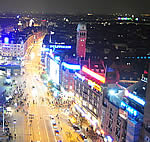 |
About 50,000 people from many different countries took to the streets of Copenhagen, Denmark Saturday to demonstrate their support for a global climate agreement. There were similar marches and rallies in cities around the world. According to the president of the UN Conference of Parties, Connie Hedegaard, progress has been made towards forming a global climate agreement. Plans for how renewable energy sources like wind turbines and solar power will get in place around the world are in the works. However, she says that there are still many areas where countries disagree. Getting the whole world to agree on something is not easy, of course. At this point, world leaders are trying to come to agreement about who should pay to help developing countries make changes that would reduce emissions. They are also trying to come to agreement about how much emission reduction should be required.
|
 |
"Copenhagen" is the most searched term on Google. The terms "climate change" and "global warming" are also popular web searches this week. Around the world, people are interested in what is happening at the Copenhagen Climate Summit. Do you wish you were in Copenhagen as the debate continues about how to slow global warming? You can watch the process yourself on the COP15 Webcasts! The link below will send you to the official webcast page where you can watch the proceedings live. You can also watch video of press conferences and events after they happen. Enjoy the debate!
|
 |
This Copenhagen meeting is the first time that rich and poor nations of the world are working together to try to find solutions to greenhouse gas emissions. However, there are questions about how much of the climate solution should come from rich countries and how much should come from poorer countries. Today in Copenhagen, China, India, South Africa, and Brazil proposed that rich nations reduce carbon dioxide emissions by 40% compared to 1990 levels. That's eight times more emissions reduction than was called for in the Kyoto Protocol. World leaders in Copenhagen are debating how developing nations like China and India can reduce emissions while continuing to grow.
|
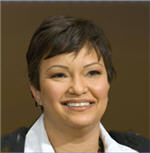 |
Today at the climate conference in Copenhagen, Lisa Jackson, Administorator of the U.S. Environmental Protection Agency (EPA) spoke to the attendees about her agency's findings. EPA scientists have determined that greenhouse gases are endangering people's health, said Jackson. That means the EPA could regulate those gases without the approval of the U.S. Congress. However, Jackson said that the EPA and the U.S. Congress will work together. "We will work closely with our Congress to pass legislation to lower our greenhouse gases more than 80 percent by 2050," said Jackson. Carbon dioxide and other greenhouse gases trap heat, warming our atmosphere. If you'd like to learn more about carbon dioxide, check out the NPR videos linked below. They are both amusing and educational!
|
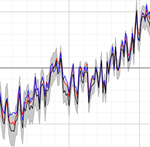 |
The World Meteorological Organization (WMO) presented today at the Copenhagen climate summit, sharing results from their analysis of global temperature records. Their analysis of climate trends shows that each recent decade has been warmer than the one before it for the past 40 years. According to their data, 2009 will likely be the fifth warmest year on record. Earth is getting warmer. As winter weather blankets North America with particularly chilly temperatures today, it's good to remember that climate is about average conditions, such as the average temperature over a year and the average temperature over the whole Earth. Weather, on the other hand, describes what is happening right now. And what's happening right now in many areas of the U.S. and Canada is extreme cold!
|
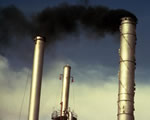 |
World leaders and delegates from 192 countries have arrived in Copenhagen, Denmark to create a new climate treaty that spells out how much countries will reduce greenhouse gas emissions that cause global warming.They are meeting until 18 December 2009, but it may take much longer - many months or even years - for all countries to agree on a plan. Check this page for updates over the next couple of weeks to learn more about what's happening in Copenhagen and link to interesting news stories and blogs. The climate summit began with presentations about the need to take actions that combat climate warming. The speakers highlighted impacts of climate change such as rising sea level and rapid Arctic warming.
|
 U.N. Climate Change Conference - COP15
U.N. Climate Change Conference - COP15






